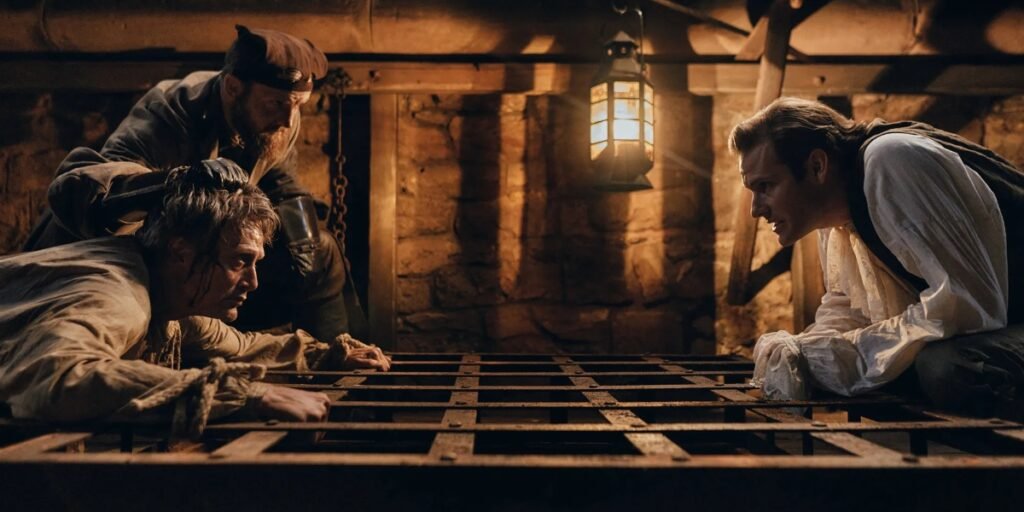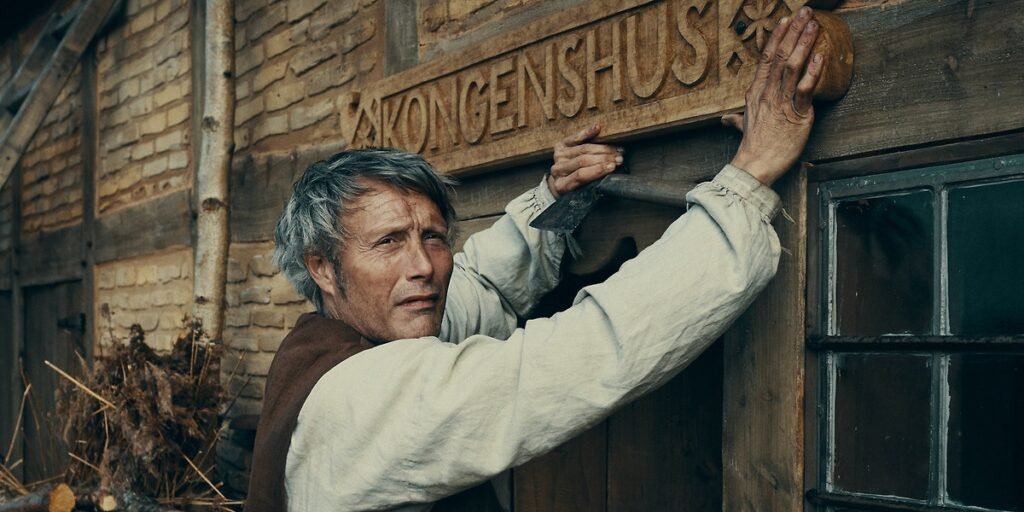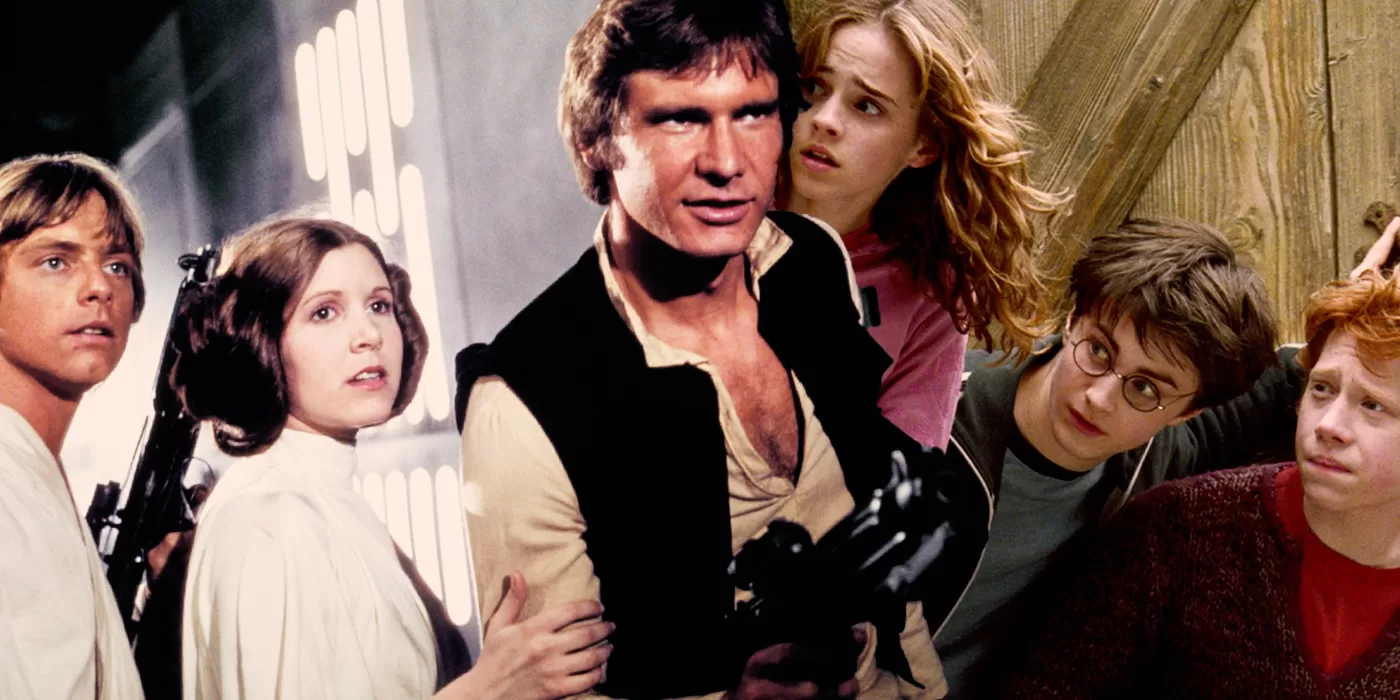Mads Mikkelsen is the man. The Danish star has a storied history of playing a malicious villain — Kaecilius in Marvel’s Doctor Strange, Dr. Hannibal Lecter in the TV series Hannibal, and even the notorious Dr. Voller in Indiana Jones and the Dial of Destiny. But in his latest movie, The Promised Land, he plays the exact opposite. A common man, to say the least, Ludvig von Kahlen doesn’t seek glory. All he seeks is legacy. A simple farmhand, he turns to purveying an uninhabitable parcel of land known as the heath, or “the world’s asshole” if you’re a nearby villager. The heath is lifeless; has been for decades. But can it be conquered? If anybody can do it, it’s Kahlen.
Having recently left the military, the stoic Kahlen sets forth to cultivate the heath seeking only one thing once he succeeds: A noble title from the king. The aristocrats of the court jest with him in his plea to let him propagate the land, prioritizing their sinister interests by using Kahlen to prove to the king that they are indeed actively trying to restore the land he is so fond of, even though they know he cannot succeed. The acidic nature of the 18th-century monarchy is on full display here, and intriguingly so.
The film flows with the undercurrent of a dirt-poor man searching for some form of recognition against a sovereignty that is rotting from within. What the vulgar and vile kingship fails to realize is that Kahlen has a secret weapon at his disposal — a new vegetable fresh from Germany by the name of the potato. A weathering, resilient element that will grow in nearly any environment, much like Kahlen himself.
‘The Promised Land’ Delivers Both Dark Violence & Gleaming Hope

Kahlen sets forth with his gang of social misfits that includes a set of married runaway servants by the names of Johannes (Morten Hee Andersen), Ann Barbara (Amanda Collin), and eventually an imposing Romani orphan Anmai Mus (Hagberg Melina) and begins building his farmhouse on the barren land. It’s here that the film feels most nurturing — a cordial concern with the simplicities of burning away the brush covering the now-discovered lone patch of fertile soil, completing work by nightfall, and scouring for enough food to survive.
It’s also here that the film explodes into its much more savage affairs. Frederik De Schinkel (Simon Bjenneberg), a brooding-if-not-over extravagant county judge in the nearest township, is the most powerful little man in the region. He appears to Kahlen as the physical embodiment of everything he is fighting against, carrying out the diabolical act of pouring boiling water on Johannes — his former servant — until he is no more. In addition to the already foul decision-making he partakes in, he refuses to believe Kahlen has the King’s approval in refining the land, which drives his madness to the surface of his already rash personality.
As tensions rise between Kahlen’s establishment that now houses himself, Anmai Mus, Ann Barbara, and De Schinkel’s growing detest for someone jousting against his power and territory, the film leaves barely any breathing room for the eventual love triangle between Kahlen, Ann Barbara, and De Schinkel’s castle-bound cousin Edel (Kristine Kujath Thorp). A piercing score from Dan Romer sees the hasty pace thrive, effortlessly evolving between controlled chaotic violence and grounded character study.
Mads Mikkelsen Brings Gravitas To ‘The Promised Land’

Director Nikolaj Arcel and co-writer Anders Thomas Jensen’s screenplay, adapted from Ida Jessen’s 2020 novel The Captain and Ann Barbara, possesses layer after layer of slicing dialogue between the good guys and the bad guys. Not only that, it retains nuances that highlight Mikkelsen’s refinement in portraying the physical, back-breaking work of a lowly plebeian and the sophisticated mental gear-turning nature of a much deeper man.
With a sprawling, gorgeous production design from Jette Lehmann and costumes from Kicki Ilander that astutely transplant us into Kahlen’s world, The Promised Land proves its prowess scene after scene. Translated to its original name of The Bastard, the film feels almost a better fit for that as a U.S. title.
‘The Promised Land’ Deserves More Love From the Academy
Sure, it’s about the promised land — both literally in Kahlen’s king-ordained parcel of paltry dirt and metaphorically in Kahlen’s quest for a lengthy legacy. But it’s much more so about a bastard — which Kahlen is — and the forms of himself he goes up against during his journey. Plus, The Bastard just sounds cooler.
Alas, The Promised Land was not nominated for Best International Feature Film at the 2024 Academy Awards, but it should have been. It’s restoration of big, period epics mixed with Mads Mikkelsen being, well, Mads Mikkelsen pushes it to demand the attention it deserves. When the dust settles and the potatoes sprout, The Promised Land will remain a powerhouse entry into the best films of the year.
The Promised Land is now playing in theaters nationwide. Follow the Agents of Fandom socials for the latest entertainment news, reviews, and interviews.
'The Promised Land' Review
'The Promised Land' ReviewThe Good
- Mads Mikkelsen continues to deliver stoic, insular performances no other Hollywood star can.
- Intricate script brings a sense of modernism to a dark, deeply violent on-screen journey.
The Bad
- The swift pacing pushes out deeper character development when it could have been helpful.











